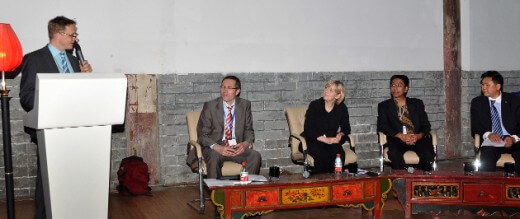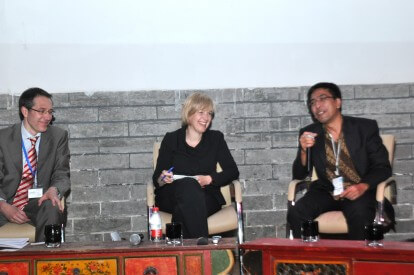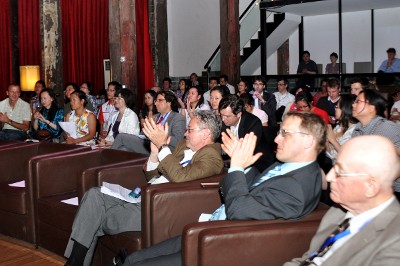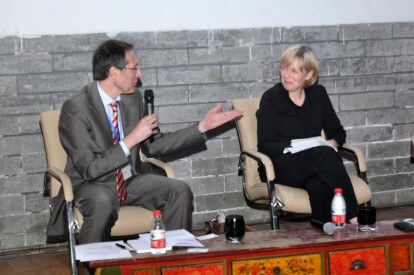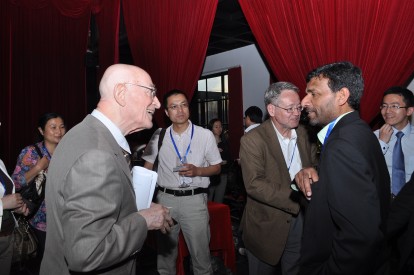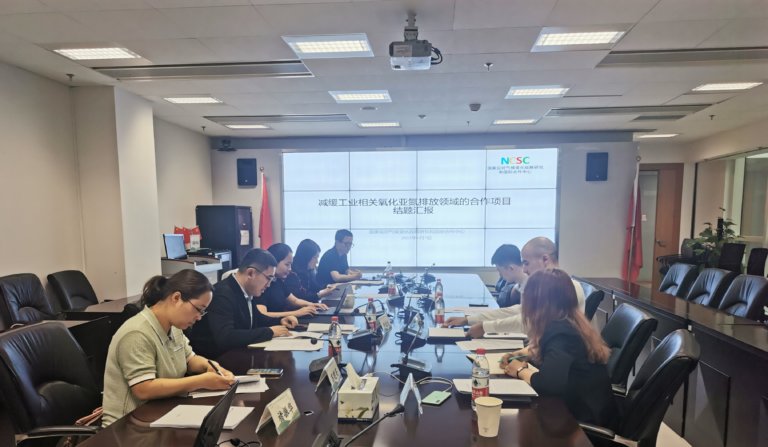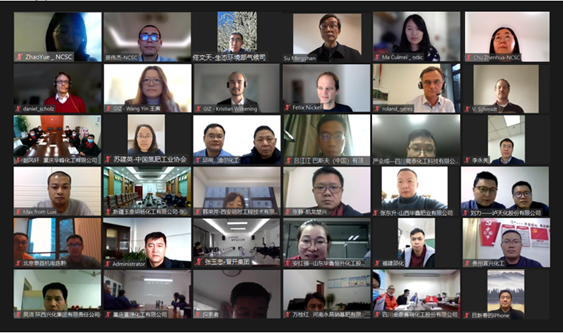24 May 2011 – The Low Carbon Leadership Network is an event series jointly organized by Deutsche Gesellschaft für Internationale Zusammenarbeit (GIZ) GmbH and China Carbon Forum (CCF). The event series facilitates communication among leading experts and key stakeholders in the international climate change sector in China.
The event ‘Emission Trading Schemes: European and Asian Perspectives of Cooperation’ presented an engaging forum to discuss the various approaches and means of cooperation for establishing emission trading schemes (ETS), in both Europe and Asia. Over 70 people from foreign embassies and institutions, Chinese government, NGOs, and industry attended the event.
The event was jointly held as part of a summer school program arranged by the International Climate Action Partnership (ICAP), a partnership of public sector organizations established in 2007 that provides public workshops and closed door meetings on how to setup well-functioning emissions trading schemes (ETS).
Speakers:
Ms. Vicky Pollard, Policy Officer Directorate General Climate Action, European Commission, Brussels
Mr. Mei Dewen, General Manager, China Beijing Environmental Exchange (CBEEX)
Mr. Andi Samyanugraha, Senior Officer, Carbon Trade Mechanism Division, National Council on Climate Change, Indonesia (ICAP Summer School)
Moderated by Mr. Sascha Müller-Kraenner, Founder and Partner, Ecologic Institute, Berlin (ICAP Summer School)
The following is an edited synthesis of the discussion. As per convention, individual’s comments are not attributed.
The National Development and Reform Commission (NDRC) plans to establish regional ETS pilots by 2013, with hopes for a national ETS by 2015. It was also mentioned that Europe took five years of thorough research and development to establish their own ETS, while the United States has discussed emissions trading schemes as early as the 1990s. In order for China to establish an ETS in such a short amount of time, cooperation with other countries with already established ETS is essential to achieving this goal.
When reflecting on the value of EU cooperation with China on ETS, the panelists observed that the conversation of the EU with China was not about linkage between the OECD member states, but rather about pilots and policy development with the government and how to strengthen cooperation in the future. In addition, the speakers noted that the EU would be able to share their lessons on how to manage diversity, given the EU’s experience with diverse member states with large economic disparities. China would have to develop its own particular ‘Chinese’ ETS, for example, by emissions trading in the agricultural sector. However, the speakers agreed the EU would be able to help in the area of capacity building and understanding.
During the panel discussion, the potential of Indonesia’s carbon market was said to be untapped, with emissions resulting largely from the land, energy, and transportation sectors. Indonesia has yet to make a decision about pursuing carbon markets, with the only definite aspect of Indonesia’s carbon markets being its large mitigation potential. Despite uncertainties, it was generally acknowledged that some fundamentals should be developed before determining what kind of carbon market would be suitable for Indonesia.
You can find more information about the Low Carbon Leadership Network and its events on http://china-lcln.org/
